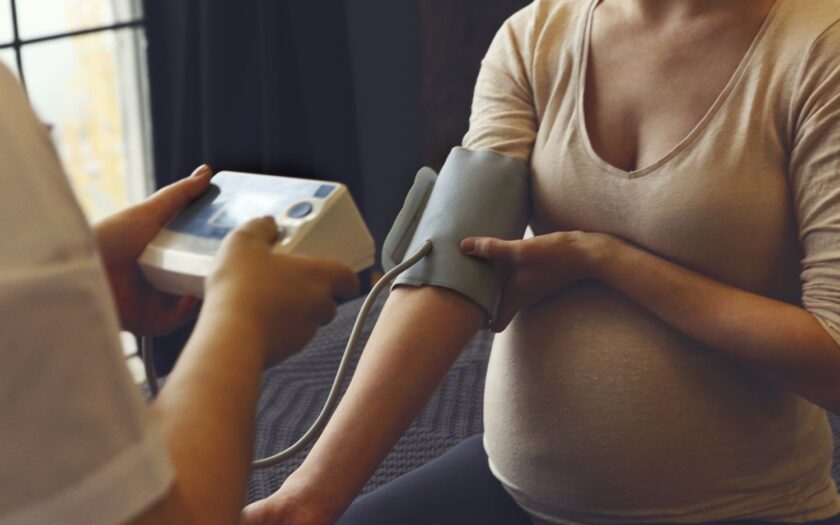A doula is a non-medical companion who provides support before, during, and after childbirth. They offer physical and emotional assistance, helping to create a positive and empowering birth experience. Doulas do not replace your birth support partner, if you have one, during labor and birth. Instead, they work collaboratively with your partner to enhance the support you receive, ensuring a cohesive and comforting presence throughout the process.
A good doula should be respectful and an excellent listener, understanding the boundaries between their role and that of your doctor or midwife. They focus on your comfort and well-being, offering personalized care and advocacy during your childbirth journey.
The Essential Role of a Doula in Your Childbirth Experience
A doula’s role is to concentrate on your individual needs and offer continuous support throughout your pregnancy, during labor, and after your baby is born. They provide physical, emotional, and informational support, helping you navigate the birth experience with confidence and comfort.
For individuals who are refugees, immigrants, or those who prefer a language other than English, having a doula who shares your cultural background and speaks your preferred language can be particularly valuable. This can enhance communication, ensure cultural sensitivity, and provide additional comfort and understanding during a significant life event.
How a Doula Supports You Throughout Your Pregnancy
Your doula will provide you with valuable information to help you prepare for labor and childbirth. They will take the time to get to know you personally, understand your preferences, and assist you in creating a comprehensive birth plan. This plan can include your desired birth environment, pain management options, and any special requests you might have. Additionally, your doula will help you navigate any concerns or questions you may have, ensuring you feel informed and supported as you approach your due date.
How a Doula Can Enhance Your Labor and Birth Experience
A doula can significantly enhance your labor and birth experience by offering personalized support and care throughout the process. From providing emotional reassurance and physical comfort to helping you navigate the stages of labor, a doula ensures that you feel empowered and informed. Their continuous presence and expertise contribute to a more positive and supportive birthing experience.
Your doula can offer invaluable support during labor and birth in several ways, including:
- reassurance and Motivation. They will provide continuous encouragement and boost your self-confidence, helping you stay calm and focused throughout the process;
- progress Updates. Your doula will keep you informed about the progress of your labor, helping you understand each stage and what to expect next;
- positioning Assistance. They will help you find and maintain comfortable positions and assist you in and out of the shower or bath, adapting to your needs as labor progresses;
- physical Comfort. Through techniques such as massage and applying heat packs, your doula can alleviate discomfort and provide physical relief;
- breathing and Calming Strategies. They will guide you in breathing exercises and other calming techniques to help manage pain and stress;
- hydration and Refreshments. Your doula will offer drinks or ice to keep you hydrated and refreshed during labor;
- support for Your Partner. They will also support your partner, helping them provide the best possible care and involvement in the birth experience.
Overall, a doula’s presence and support can significantly enhance your comfort and overall birthing experience.
In conclusion, a doula’s support during labor and birth can profoundly impact your overall experience, providing both emotional and physical assistance tailored to your needs. Their expertise and continuous presence help to create a more positive and empowered birthing environment, making a significant difference in your comfort and confidence throughout the process.
Supporting You After Birth: How a Doula Can Assist Postpartum
After your baby is born, your doula can assist you in getting to know your newborn. In conjunction with your midwife and child health nurse, your doula can provide guidance on feeding your baby, helping you establish feeding routines, and offer tips on settling and caring for your little one. Additionally, some doulas may offer support with household tasks such as meal preparation, managing household chores, and caring for older children, allowing you to focus on bonding with your new baby and adjusting to the postpartum period.
Understanding Doula Certification and Training
Doulas are not required to have specific qualifications, but many choose to undergo training to enhance their skills in birth support. Various organizations, such as the Australian Doula College and Australian Doulas, offer comprehensive doula training programs. These programs cover topics such as labor support techniques, emotional coaching, and postpartum care, helping doulas provide informed and effective support to their clients. Training can vary in length and depth, and some doulas may also pursue additional certifications to further their expertise.
Doula vs. Midwife: Understanding the Key Differences in Roles and Responsibilities
Midwives are trained health professionals who provide medical care during childbirth. Some midwives are qualified nurses who have completed additional studies to specialize in midwifery, while others hold a degree in midwifery from a university. Practicing midwives must be registered with the Nursing and Midwifery Board of Australia.
In contrast, birth doulas do not have medical training and are not responsible for providing medical or health care advice. Their role focuses on emotional and physical support rather than medical intervention. If you are planning a home birth, it is essential to have a qualified midwife present to ensure medical safety.
Doulas are not covered by Medicare or private health insurance and typically charge a private fee for their services. Their support is provided on a fee-for-service basis, reflecting the personalized care they offer.
Finding the Right Doula: A Guide to Choosing and Locating Your Support
You can find a doula through reputable organizations such as the Australian Doula College and Doula Network Australia, which offer directories of trained and certified doulas. Additionally, asking your doctor or midwife for recommendations can be helpful, as they may have connections with experienced doulas in your area. Online platforms and local parenting groups can also be valuable resources for finding and interviewing potential doulas. It’s important to meet with a few doulas to discuss your needs and ensure a good fit for your birth plan and personal preferences.
Essential Questions to Ask When Choosing a Doula
Choosing the right doula is a crucial step in preparing for a positive birth experience, as their support can significantly impact your labor and postpartum period. To ensure you find a doula who meets your needs and preferences, it’s essential to ask the right questions. This guide will help you identify key questions to ask when selecting a doula to ensure a good fit and a supportive partnership.
Meeting with a doula during your pregnancy is crucial for building a strong, trusting relationship. Just like any relationship, there’s no guarantee that the first doula you meet will be the perfect fit, so it’s worth meeting with a few to find the right match.
To ensure you find a doula who aligns with your needs and preferences, prepare a list of questions to ask. Here are some important questions you might consider:
- what training or experience do you have? Understanding their background can help you gauge their expertise and approach;
- what services do you provide? Clarify the range of support they offer, from prenatal visits to labor and postpartum care;
- what are your fees and charges? Discuss their pricing structure to ensure it fits within your budget;
- do you have a Working with Children Check and Police Check? Verify their background checks to ensure safety and professionalism;
- are you up-to-date with your vaccinations, particularly for whooping cough and influenza? This is important for the health and safety of both you and your baby;
- can you provide any testimonials from previous clients? Hearing from other families can give you insight into their experiences and satisfaction.
These questions will help you assess whether a doula is the right fit for your birth plan and personal needs.
In conclusion, asking the right questions when choosing a doula is vital to finding someone who aligns with your needs and preferences. By thoroughly vetting potential doulas, you can ensure a supportive and positive experience throughout your pregnancy, labor, and postpartum journey. A well-informed decision will help you build a strong partnership with your doula, enhancing your overall birthing experience.
Exploring the Work Environments of Doulas
Doulas can travel to the hospital or birth center where you plan to give birth, providing support in these medical settings. They can also attend home births, offering continuous care in a familiar and comfortable environment. Additionally, some doulas may provide support for birthing in alternative settings, such as birth centers or even during planned cesarean sections, depending on their experience and your needs. Their flexibility allows them to adapt to various birth environments and ensure you receive consistent support regardless of where you choose to labor.
Timing: When to Introduce Your Doula to Your Pregnancy Care Provider
Discuss your plans to include a doula in your care with your pregnancy care provider early on. If possible, arrange for your doula to attend a few antenatal appointments so they can meet and build rapport with your healthcare team.
Your relationship with your doula will differ from your relationship with your doctor or midwife, as doulas focus on emotional and physical support rather than medical care. Having both a doula and a medical professional involved offers complementary benefits, enhancing your overall care experience.
It’s crucial that your doula cooperates with hospital or birth center staff and follows their protocols. For instance, your doula may need to step out of the room if your doctor or midwife requests it, especially in emergency situations, to ensure a smooth and safe delivery.



